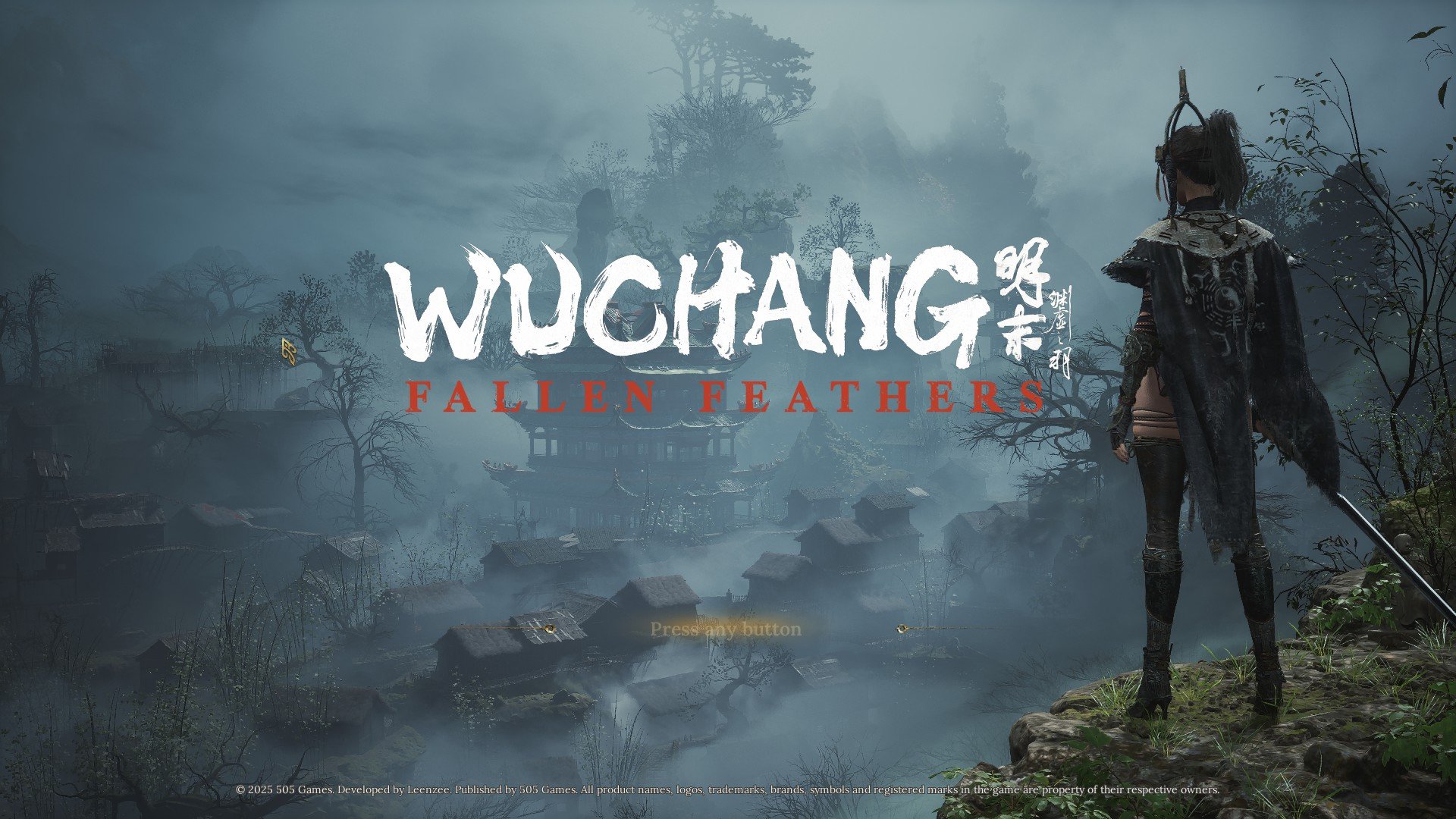
Wuchang: Fallen Feathers” – An immersive Soulslike set in an antique Chinese ambiance, blending authentic landscapes and captivating folklore. The visual appeal is matched by the engaging gameplay that encourages killing sprees, making it an enticing experience for both veterans and newcomers of the genre. While it boasts style and originality, a combination of minor flaws coalesce to create a more substantial issue, stopping me from declaring “Wuchang: Fallen Feathers” as a flawless game.
Wuchang: Lost Plumage
The story begins with our protagonist, Wuchang, finding herself unconscious under a Buddha shrine in a Taoist temple. It’s soon discovered that her peculiar condition—feathers sprouting from her skin, memory loss, and impending transformation into a creature—is not unique; it has afflicted numerous others in the area following an assault by a formidable evil. Yet, you are exceptional, for you possess the power to control this anomaly… if you can resist falling into madness.
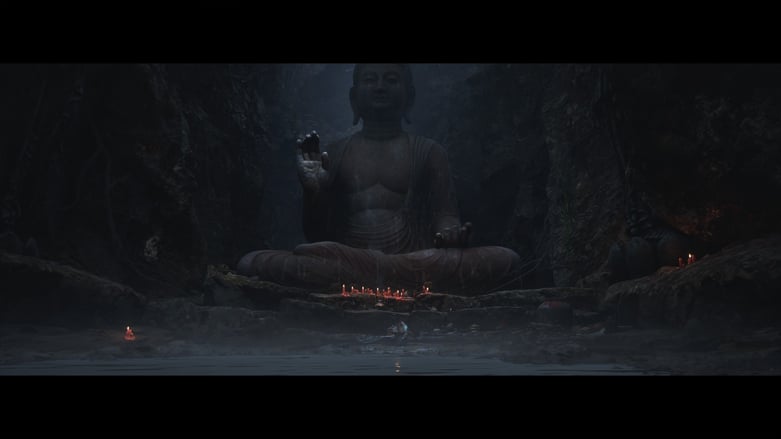
In the game Wuchang: Fallen Feathers, the narrative and writing aren’t its most striking aspect. However, the world itself is brimming with fascinating concepts, captivating character designs, and breathtaking landscapes, which I will delve into further. Unfortunately, the writing itself fell short, leaving a lot to be desired. The interactions with Non-Player Characters (NPCs) were brief, sometimes confusing, and often delivered information bluntly without much context or follow-up questions from our protagonist, Wuchang. Conversations frequently took a straightforward approach, such as “Hello, Wuchang. We’re in this region. Here’s what’s happening,” and concluded abruptly with little exploration of the NPC’s knowledge or reasons for their insights.
The reason might be linked to translation issues, but the sentences weren’t hard to understand—rather, they seemed to lack background details or development. Interestingly, given the character with amnesia, these dialogues felt like chats with individuals who recalled past discussions I couldn’t remember. However, it was never the intention to create such a world where all story details are revealed through conversations, and this approach didn’t make me feel immersed in the narrative.
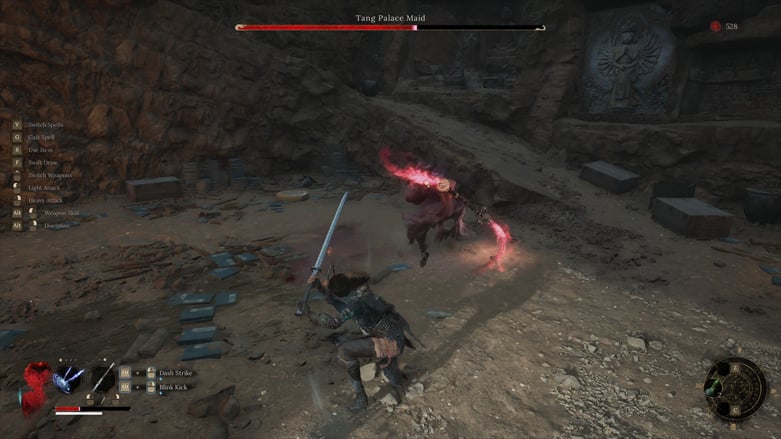
It’s fortunate that you seldom depend on conversations with NPCs to navigate in the game Wuchang: Fallen Feathers. The levels are designed sequentially, with striking sceneries guiding your path to the next region. This design is reminiscent of the Dark Souls series it borrows from, but fans of Elden Ring might lament that there’s less freedom to roam and level up before moving towards the next goal.
When it comes to the concept of upgrading, the game “Wuchang: Fallen Feathers” alters the usual soulslike structure by transforming the conventional level-up system into a skill tree. Instead of directly enhancing your attributes, you exchange “souls” for ability points that can be invested across branches specialized in various weapon categories. Numerous nodes provide direct attribute boosts, while others introduce fresh gameplay mechanics.
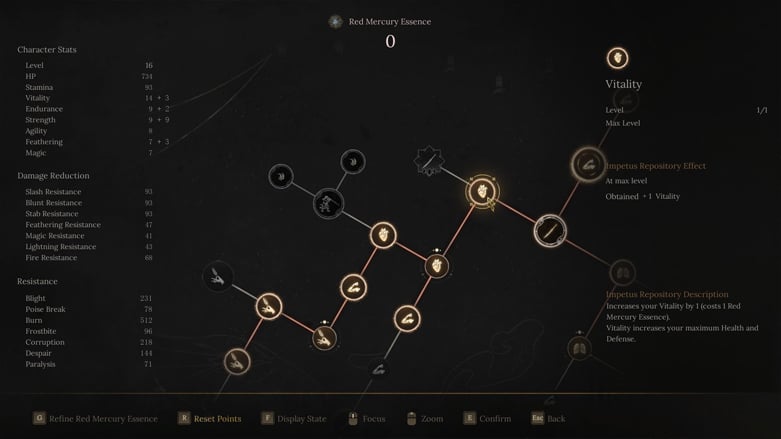
I’m still undecided about this new system versus the traditional soulslike approach. It seems to offer advantages, but it leaves me feeling less in command of where my level-ups are allocated. Additionally, I’m not particularly fond of linking mechanics with level-ups, although I can’t quite figure out what alternative approaches the game could have taken.
One aspect I’m pondering over is the ‘demonic adversary system’; by vanquishing humanoid foes and partaking in actions that amplify your power, you amass ‘insanity’. This heightened state of insanity escalates the peril within the world. If you meet your demise while your insanity gauge is maxed out, a powerful demonic adversary will materialize near your grave—a formidable foe to confront in the vicinity of your resting place.
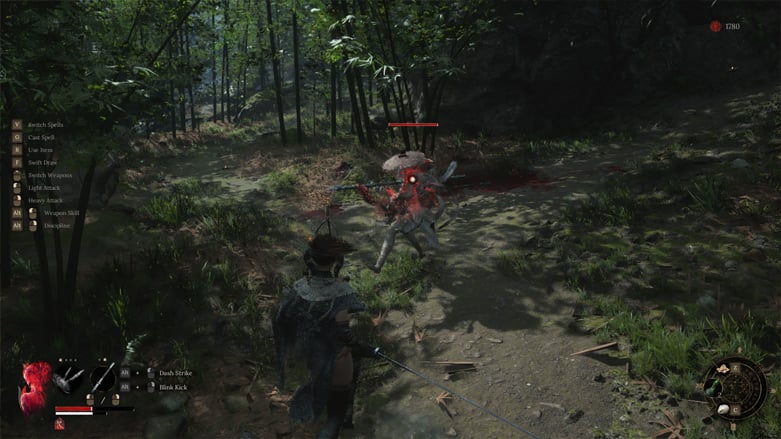
It’s enjoyable encountering your rival, as she can be utilized tactically against adversaries and bosses. However, the “madness” mechanism seems challenging to dodge, particularly with numerous human opponents. Moreover, summoning an extremely potent foe upon death feels like excessive punishment, especially considering she hovers over the spot where you lost all your “currencies.
Fallen Feathers offers enjoyable gameplay overall, but there are certain adjustments in its formula that I’m not particularly enamored with. The game focuses on special attacks and spells, which you acquire by landing combos. However, it omits a blocking mechanism entirely, relying solely on dodging. This can be problematic because enemies can continue their combos even after you dodge, and your own attacks don’t stagger—meaning you can’t interrupt their attacks. Additionally, dodging can cause you to collide with the terrain, trapping you and moving the camera for an annoying death experience.
The Final Word
The game titled “Wuchang: Fallen Feathers” is stylish and imaginative, boasting an original setting, smart gameplay elements, and stunning graphics. However, its narrative falls short, and I believe the mechanics may spark debate among genre enthusiasts. While I’m confident many players will adore it, my personal opinion is that “Wuchang” has a few too many wrinkles to really take flight.
Try Hard Guides was provided a Steam code for this PC review of Wuchang: Fallen Feathers. Find more detailed looks at popular and upcoming titles on our Game Reviews page! Wuchang: Fallen Feathers is available on Steam, Epic Games, PlayStation, and Xbox.
Read More
- Best Controller Settings for ARC Raiders
- Every Targaryen Death in Game of Thrones, House of the Dragon & AKOTSK, Ranked
- Battlefield 6 Season 2 Update Is Live, Here Are the Full Patch Notes
- The Best Members of the Flash Family
- The Pitt Season 2, Episode 7 Recap: Abbot’s Return To PTMC Shakes Things Up
- Dan Da Dan Chapter 226 Release Date & Where to Read
- Duffer Brothers Discuss ‘Stranger Things’ Season 1 Vecna Theory
- ‘Crime 101’ Ending, Explained
- Ashes of Creation Mage Guide for Beginners
- Tom Hanks Called The Best Years of Our Lives ‘the Best Film About WW2’
2025-07-23 15:38